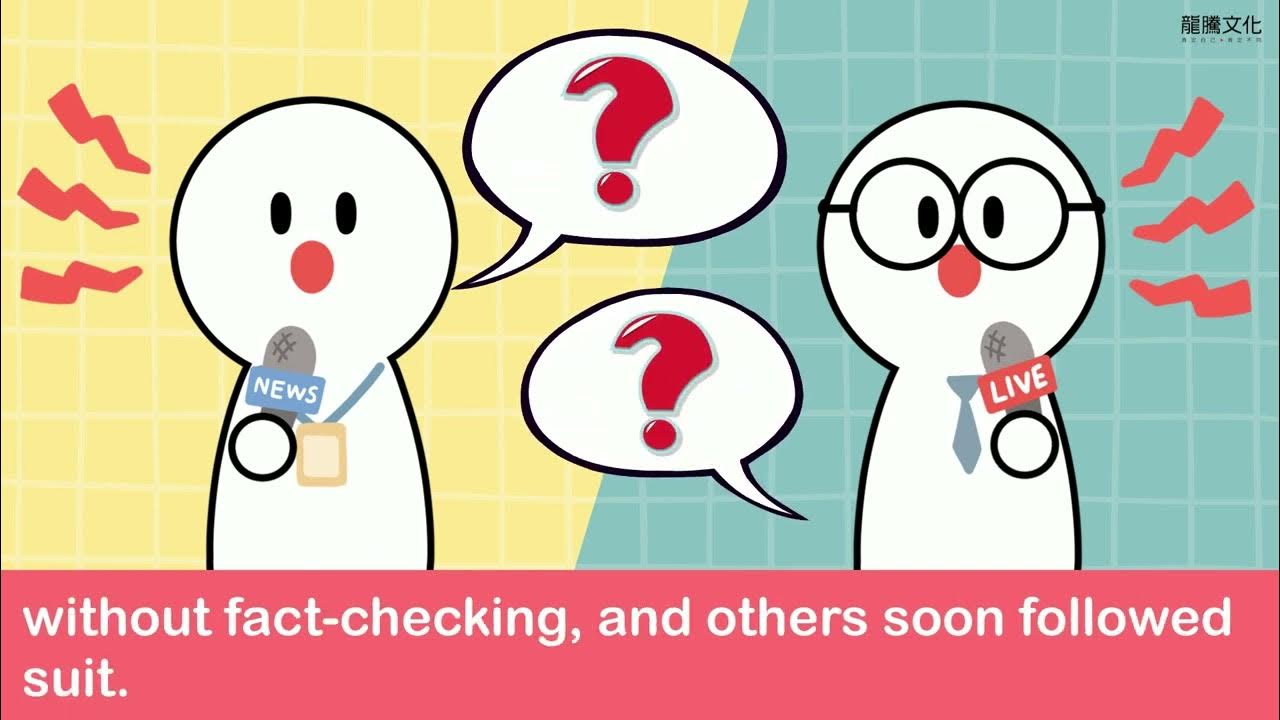How Disinformation Spreads (With ATOM ARAULLO)
Summary
TLDRIn this insightful script, Atom Araullo addresses the pervasive issue of 'fake news', comparing its spread to a viral infection. He debunks a personal myth about his name's origin, emphasizing the ease with which false information can be accepted as truth. Araullo highlights a study by MIT that false news spreads faster due to its novelty. He outlines three reasons why people believe fake news, including its source, the bandwagon effect, and the influence of bots and trolls. The script warns of the detrimental effects of misinformation on society, including the erosion of trust in media and the undermining of democracy, urging for responsible sharing of information.
Takeaways
- 📢 The COVID-19 pandemic is considered over by the World Health Organization, but there's another 'virus' spreading: fake news.
- 🗣️ Atom Araullo clarifies a common false belief about the origin of his name, debunking a myth related to the August Twenty-One Movement.
- 🗓️ Araullo was born before the formation of the August Twenty-One Movement, showing the importance of fact-checking dates in debunking misinformation.
- 👥 The name 'Atom' is derived from his grandfathers' names, Alfonso and Tomas, illustrating how personal narratives can be misconstrued.
- 📈 A study by MIT shows that false information spreads faster than verified news due to its novelty and interesting nature.
- 🤔 People are more likely to believe fake news from sources they trust, such as family, friends, or influencers.
- 🤖 The spread of false information is facilitated by bots and trolls, which are programmed to disseminate lies on the internet.
- 😷 Just like a virus, false information can infect people without them realizing, leading to a lack of awareness of the misinformation they spread.
- 💡 The University of Exeter study highlights four negative effects of being infected with false information, including belief in conspiracy theories and distrust in science.
- 🗳️ The spread of false information can undermine democracy by affecting people's ability to make informed choices based on facts.
- 👵👦 Vulnerable groups to false information include the elderly, the youth, and those with limited knowledge about misinformation.
- 🤝 Araullo encourages helping those who fall for fake news instead of mocking them, and emphasizes the importance of reporting false information.
- 📝 He concludes by stressing the power of words and the responsibility to ensure that what we share is accurate and truthful.
Q & A
What is Atom Araullo's profession?
-Atom Araullo is a reporter, news anchor, and documentarist.
According to the World Health Organization, what is the status of the COVID-19 pandemic?
-The World Health Organization has stated that the COVID-19 pandemic is over.
What is the 'fake news virus' referred to in the script?
-The 'fake news virus' is a metaphor for the rapid spread of false information or fake news in society.
What is the origin of Atom Araullo's name, as mentioned in the script?
-Atom Araullo's name is derived from the combination of the names of his two grandfathers, Alfonso and Tomas.
Why did a myth about Atom Araullo's name spread quickly?
-The myth spread quickly because it was interesting and different from usual topics, making it more likely to be shared by people.
What does the research from the Massachusetts Institute of Technology (MIT) suggest about the spread of false information?
-The MIT research suggests that false information spreads faster than verified news due to its novelty and the tendency of people to share interesting or different content quickly.
What are the three reasons people tend to believe fake news more than true information, as outlined in the script?
-People tend to believe fake news more when it comes from family or friends, from well-known individuals, and when it is spread by groups with significant resources, such as bots and trolls.
What are the four negative effects of being infected with false information, as per the study by the University of Exeter?
-The four negative effects are: 1) increased belief in conspiracy theories, 2) distrust in science and research, 3) distrust in journalists and the media, and 4) a decline in democracy and the right of people to make informed choices.
What is the role of bots and trolls in spreading false information?
-Bots and trolls are programmed or individuals using fake social media accounts to spread false information on the internet.
What advice does Atom Araullo give for dealing with people who fall for fake news?
-Atom Araullo advises to help those who fall for fake news instead of mocking them, and to explain to those who knowingly spread lies that it is wrong.
What is Atom Araullo's final recommendation for dealing with false information?
-Atom Araullo recommends reporting false information on social media platforms or sending it to fact-checking organizations, and always ensuring that what is posted is correct and true.
Outlines

This section is available to paid users only. Please upgrade to access this part.
Upgrade NowMindmap

This section is available to paid users only. Please upgrade to access this part.
Upgrade NowKeywords

This section is available to paid users only. Please upgrade to access this part.
Upgrade NowHighlights

This section is available to paid users only. Please upgrade to access this part.
Upgrade NowTranscripts

This section is available to paid users only. Please upgrade to access this part.
Upgrade NowBrowse More Related Video
5.0 / 5 (0 votes)





